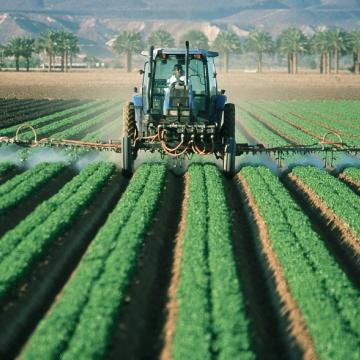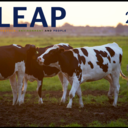Keeping The Food System Within Planetary Limits

Researchers Set Out Options For Keeping The Food System Within Planetary Limits
Date posted: 11 October 2018
A global shift towards healthy and more plant-based diets, halving food loss and waste, and improving farming practices and technologies are required to feed 10 billion people sustainably by 2050, a new study finds. Adopting these options reduces the risk of crossing global environmental limits related to climate change, the use of agricultural land, the extraction of freshwater resources, and the pollution of ecosystems through overapplication of fertilizers, according to the researchers.
The study, published in the journal Nature, is the first to quantify how food production and consumption affects the planetary boundaries that describe a safe operating space for humanity beyond which Earth’s vital systems could become unstable.
“No single solution is enough to avoid crossing planetary boundaries. But when the solutions are implemented together, our research indicates that it may be possible to feed the growing population sustainably,” says Dr Marco Springmann of the Oxford Martin Programme on the Future of Food and the Nuffield Department of Population Health at the University of Oxford, who led the study.
“Without concerted action, we found that the environmental impacts of the food system could increase by 50-90% by 2050 as a result of population growth and the rise of diets high in fats, sugars and meat. In that case, all planetary boundaries related to food production would be surpassed, some of them by more than twofold.”
The study, funded by EAT as part of the EAT-Lancet Commission for Food, Planet and Health and by Wellcome’s “Our Planet, Our Health” partnership on Livestock Environment and People, combined detailed environmental accounts with a model of the global food system that tracks the production and consumption of food across the world. With this model, the researchers analysed several options that could keep the food system within environmental limits. They found:
- Climate change cannot be sufficiently mitigated without dietary changes towards more plant-based diets. Adopting more plant-based “flexitarian” diets globally could reduce the greenhouse gas emissions of the food system by more than half, and also reduce other environmental impacts, such as those from fertilizer application and the use of cropland and freshwater, by a tenth to a quarter.
- In addition to dietary changes, improving management practices and technologies in agriculture is required to limit pressures on agricultural land, freshwater extraction, and fertilizer use. Increasing agricultural yields from existing cropland, balancing application and recycling of fertilizers, and improving water management, could, along with other measures, reduce those impacts by around half.
- Finally, halving food loss and waste is needed for keeping the food system within environmental limits. Halving food loss and waste could, if globally achieved, reduce environmental impacts by up to a sixth (16%).















